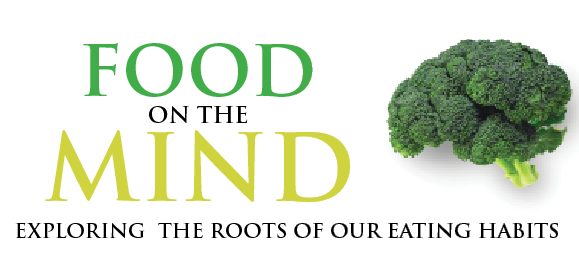Food on the mind - Exploring the roots of our eating habits

The pursuit of a healthy lifestyle and the body to match has never been so blatantly at the forefront of public consciousness. Yet here in Ireland (and around the world) we are quickly becoming increasingly overweight and unhealthy. This of course begs the question, why do we struggle so much with something that is apparently so important?
Understanding what happens somewhere in between wanting to achieve and maintain a healthy weight versus making mouthful to mouthful decisions in line with this desire is a huge topic of research. Whether it is education, genetics or modern life, what is clear is that there appears to be no single or simple explanation. As a result we are endlessly bombarded with new solutions that operate on the principles of eating less and moving more. But what if amongst all these explanations we are overlooking at least one crucial psychological question – what are we really hungry for?
The potential symbolic nature of weight is not generally something that is discussed when it comes to understanding why it is that so many people struggle to maintain a healthy weight. Yet perhaps for many people it can feel easier to carry the weight of things that cannot be said on our bodies rather than in our hearts. Often dismissed as comfort eating, what if we are symbolically eating the feelings that cannot be expressed?
The struggle to maintain a healthy weight often results in cycles of healthy versus unhealthy living which parallel events both within and without our awareness. These cycles are never-ending as the focus is always on the food and weight, rather than the underlying thoughts and feelings causing the shift in behaviour, in other words the focus is on the symptoms rather than the cause.
However often the more you focus on your weight the worse you feel, and the worse you feel the more you want to eat. This is in direct conflict with the widely held belief that when you change your weight you will change your life. This order means that many people get stuck in the weight-loss struggle, believing that if they could only change their weight everything would be better. This is convenient really given how financially lucrative the weight-loss market is.
But when the desire for food is psychological rather than physical, what is it that you are really hungry for? When it feels like you cannot get what you really need, food may be the only thing that you can have as much as you want of. Maybe it is also the only thing that you believe makes you feel better in that moment where it feels like nothing else will. After all at our most primitive state human beings are pleasure seekers and it feels good to feel good, especially when you feel bad.
If food is giving you something you need that helps you to get through your day, maybe it is not the enemy, and it is important to first understand why it is that you need food in this way before you try and deprive yourself of this way of coping you have come to rely on. Maybe food has helped you through some difficult times in your life, maybe it has been a source of some comfort, maybe if it wasn’t for food it could have been something worse.
The media is a hot bed for stereotypes about weight which by and large propagate the idea that weight-loss is for the psychologically strong and being overweight is due to being psychologically weak. If food is a tool you have used to cope and you are here now and realising that, I for one will not believe that makes you weak. Understanding how food has helped you in your life can help to see what you really need in those moments where you turn to food. It can also help to ease the often crippling shame and guilt that comes with overeating.
This shift in perspective can help to end the familiar and futile struggle with weight so you can begin to challenge your beliefs around what your weight means. What are your beliefs about your weight? Do you believe it is the one thing that holds you back in your life? Focusing on our weight as the source of our problems can provide a simple explanation - something to blame in order that we can carry on believing that everything else in our lives is perfect. Herein lies the weight-loss struggle.
Maybe instead of focusing on weight-loss it is time to focus on taking back all the parts of yourself that you have lost along the way. The large majority of people I work with know the difference between food that is good for a healthy body versus food that should be eaten in moderation. While good support and guidance is undoubtedly of benefit here the real benefit is in finding support for the rest of you - for the parts of you that you do not acknowledge when you define yourself by your weight alone.
We are under enormous, inescapable social pressure to look and live in a set way. We can so easily sacrifice so much of our lives and our happiness to the unsuccessful pursuit of false ideals of what the attainment of these standards will mean to us. But perhaps it is time to bring the “I” back into weight. There is more to this struggle with weight than calories, it is you. Glorious you.

I am passionate about promoting an understanding of how people relate to hunger that dignifies the absolute humanity of an individual’s experience. I am starting up as a Vinyasa Yoga instructor and am training as an Integrative Psychotherapist. My previous studies include an MA in Psychology.
I currently live in Limerick but the beautiful mountains of Kerry will always be home. I can be reached by email at [email protected]
Latest Issue
Upcoming Events
-
17/04/2020 to 26/04/2020
-
18/04/2020
-
23/04/2020
-
15/05/2020 to 23/05/2020
-
16/05/2020 to 17/05/2020
Recent Articles
Article Archive
- November 2011 (2)
- January 2012 (3)
- February 2012 (2)
- March 2012 (2)
- April 2012 (4)
- May 2012 (4)
- June 2012 (1)
- July 2012 (3)
- August 2012 (2)
- October 2012 (2)

